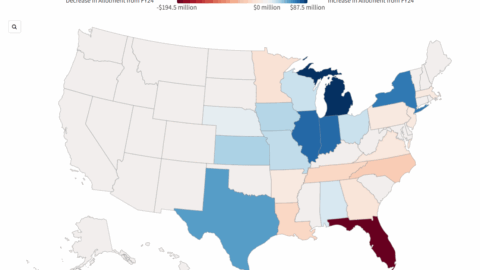
European Commission plans to ban food uses of BPA. We ask again: Where is FDA?
Maricel Maffini, consultant, and Tom Neltner, Senior Director, Safer Chemicals
What Happened?
On June 2, the European Commission, the executive body of the European Union (EU) responsible for proposing legislation and implementing decisions, announced it is preparing an initiative that “will impose a ban on the use of BPA [bisphenol A] in food contact materials (FCMs), including plastic and coated packaging.” It also said it would “address the use of other bisphenols in FCMs to avoid replacing BPA with other harmful substances.” The Commission’s proposal is based on the European Food Safety Authority’s (EFSA) scientific opinion that exposure to BPA is a “concern for human health.”
Why It Matters
In April, EFSA concluded that Europeans were exposed to levels of BPA from food that were 100 to 1,000 times greater than the estimated safe amount, and that this exposure could lead to an overactive immune system producing out-of-control inflammation. BPA was also associated with disrupting the endocrine system, harming reproduction, and reducing learning and memory. The immune system was most sensitive to BPA exposure. Recognizing these risks, the Commission moved quickly to protect Europeans’ public health by banning uses of BPA.
Our Take
Americans’ exposure to BPA from food is similar to that in Europe. Unfortunately, FDA doesn’t share the same sense of urgency to protect our families as the European Commission is demonstrating by its actions. While Europe is moving forward to ban the use of BPA in food contact materials, the FDA has failed to take action.
EDF and our allies submitted a food additive petition asking the agency to limit BPA exposure from food by revoking approvals for using BPA in adhesives and can coatings and to setting strict limits on using BPA in plastic that contacts food. FDA filed the petition on May 2, 2022 and has not made a final decision on it despite a 180-day statutory deadline. It is now more than 400 days overdue.
In January, FDA Commissioner Califf announced “a new and transformative vision for the FDA Human Food Programs” which includes a Deputy Commissioner for Human Foods with “decision-making authority over policy, strategy and regulatory program activities.” These are important steps, but a real measure is making timely decisions to protect American’s health by restricting the use of toxic chemicals such as BPA.
Next Steps
We will continue to press FDA to make a final decision on the petition, including potentially taking legal action for unreasonable delay in responding to our petition.













